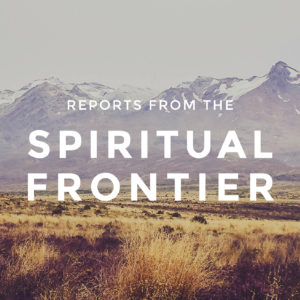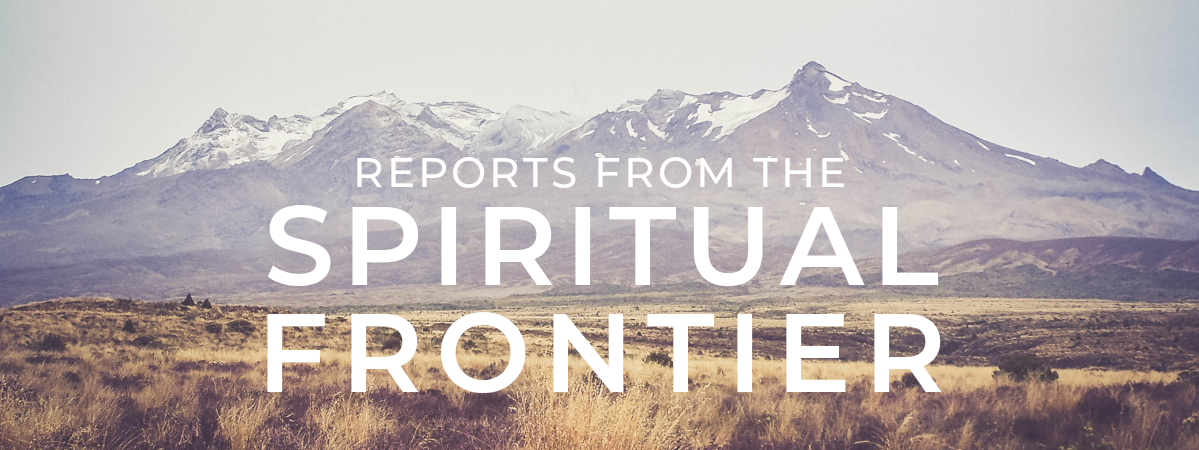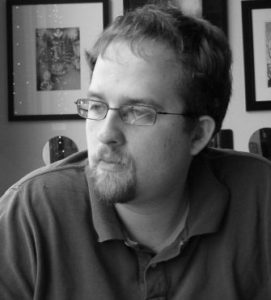
Twice a year, I try to check in with you all about how my podcast, “Reports from the Spiritual Frontier” is going. (My last update is here.) A lot has changed in my life since I last wrote to you all in June. I left two jobs due to my illness, my health finally turned a corner in November, I turned in my local pastor’s license in December, and I find myself in the exciting and painful process of re-evaluating my vocational future.
As I look back at the start of this podcast in 2016, I realize that this podcast began because my career-obsessed, “Must Make a Difference!” self was desperately reaching for something to anchor its ego to. That doesn’t mean that the podcast hasn’t born fruit, hasn’t brought me joy, and can’t be joyful and life-giving for me in the future, but it does mean that I have to discern carefully about whether this is something that I need to embrace or set down as I head into the next phase of my life.
In short, season three is make or break for this little podcasting project. I’ll be working harder than I ever have to make this podcast truly spectacular and get the word out. I’ll also be listening carefully for the voice of God – both in my own personal experience of producing and promoting this podcast, and in the response of my audience to see if my efforts are bearing fruit or not.
With all that in mind, here’s my response to those questions I began this project with.
1) Am I having fun?
The interview process – yes. My conversations with these practitioners and saints-in-the-making are the most holy moments of my week. I feel that we are beginning to map the spiritual topography of the church that is yet-to-come and that is a beautiful privilege.
The promotion – nope, not at all. (Other than my truly excellent partnership with Path1 (who has re-upped for another year!).) My ego is far too attached to the numbers (more on those in a minute), to the guests, and to my attempts at forming community and partnerships.
I also had half a dozen guests say “Yes” to coming on the show, and then not show up, often at the last minute, which blew my posting schedule to hell three times this last year. I didn’t have that problem in season one, so this was a particularly unpleasant surprise.
2) Is it sustainable?
This is the key question. This is becoming more of a tight fit financially for me, especially as I left two jobs this last year due to my health. As I mentionedbefore, I love the conversations, but have had a really difficult time with promotion, which often feels like I’m just shouting cheerfully into a void.
3) Is it making a difference?
About those stats: after huge growth in the summer, my numbers dropped precipitously in the fall, down to about what they were at the beginning of the year. I don’t know why. It might be how my health impacted my posting schedule. It might be switching days. It might have been one partner no longer running me in their newsletter. It could be something else entirely- my current podcast stats package is intentionally obtuse in , so I’m switching to a different host, so I can hopefully pinpoint better what’s working and what’s not. (Still, I had did have 2000 listens my first year, and 13000 my second, so I’m probably more worried about this than I should be. At worst, my audience tripled this year, so that’s not bad.)
I’ve had a difficult time engaging my audience, with a few notable exceptions. My requests for conversations, suggestions, and feedback have all gone entirely unheeded, (I even offered to send anyone who sent me a note a dozen home-baked cookies, to absolutely no avail.)
I’ll be watching this A LOT this next year – I don’t need this project to fuel my own ego anymore, I need to see that it’s making a tangible difference in the lives of my listeners.
4) Am I learning?
My proficiency conducting interviews and editing episodes is at an all-time high – I can now conduct a good interview in an hour and then edit/post/promote in two, while feeling good about what I’m doing. It took me FIFTEEN hours to post an interview at the beginning of season one, and eight hours to post a new interview at the beginning of season two, so this is meaningful progress.




